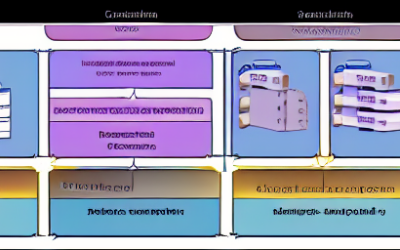Iterative application services are a type of software development methodology that focuses on delivering small, incremental changes to a software application over time. This approach is typically used when an organization wants to avoid the risk and cost associated with large, one-time changes.
Tech Blog
Tech Insights, Information, and InspirationBusiness Management Software
Business management software is a type of software that is used to manage the various aspects of a business, such as finances, operations, inventory, customer relations, and human resources. It helps companies streamline their processes and operations, improve efficiency, and increase productivity.
Business and Systems Integration
Business and systems integration is the process of connecting different business systems and processes together. This can be done for a number of reasons, such as to improve efficiency or to enable data sharing between different systems.
Improving Data Quality
Data quality is important because it can be used to improve decision making, to assess the performance of organizations and individuals, and to help understand and manage risks. Additionally, data quality can be used to improve the efficiency and effectiveness of processes and systems. Finally, data quality can help create a competitive advantage for organizations.
Software Architecture
Software architecture is a high-level structural design of a software system. It partitions the system into subsystems and defines the relationships between them. The aim of software architecture is to facilitate understanding, development, evolution, and reuse of a software system.
Edge Computing
Edge computing is a distributed computing paradigm that brings computation and data storage closer to the location where it is needed, to improve response times and save bandwidth. In general, edge computing means doing more locally and reducing the need to send data back and forth across networks.
Programming Trends: Languages, Frameworks, Future
There are always new trends in programming, as the field is constantly evolving. Some of the latest trends include functional programming, declarative programming, and concurrent programming.
Social Media Marketing: Worth It or Wasteful
Social media marketing is a process of creating content that is designed to be shareable on social media platforms. The goal is to create engaging and valuable content that will encourage users to share it with their followers. The potential reach of social media marketing is vast, and the ability to target specific demographics makes it an effective way to reach a wide audience.
The Need for Data Regulation
Data is increasingly becoming one of the most valuable commodities in the world. As our lives move increasingly online and more data is shared, it is becoming more important to ensure that this data is properly regulated.
Custom Software Solutions
Custom software solutions are designed to meet the specific needs of a customer or business. They are created to solve a specific problem or address a specific need that is not met by off-the-shelf software.
Get In Touch
UseTech Design, LLC
TROY, MI • BLOOMFIELD HILLS, MI
Call or text +1(734) 367-4100










